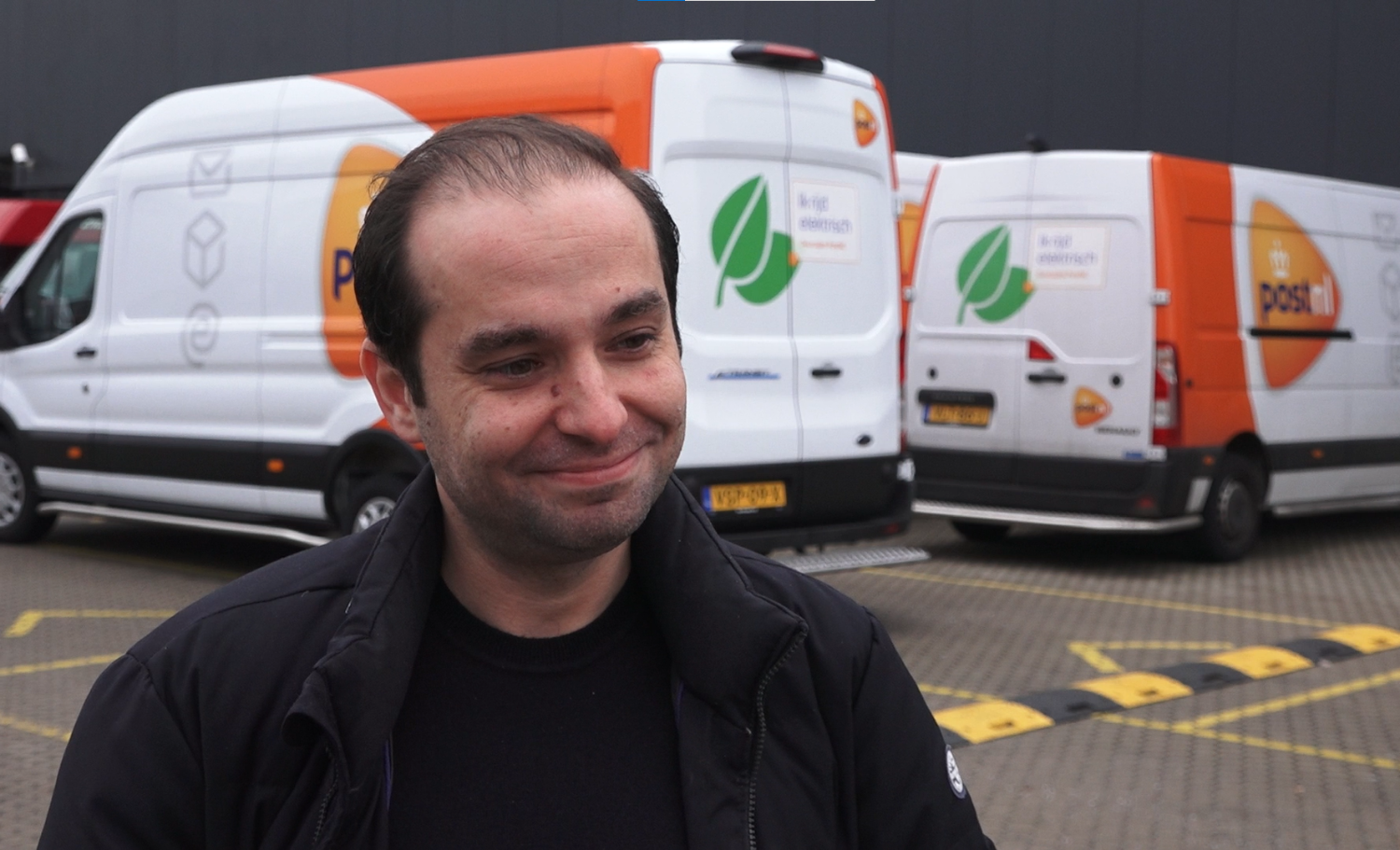Our buildings and facilities are an important part of our ongoing focus on reducing our environmental footprint. We have significantly reduced the environmental impact of our buildings and facilities in recent years, and have achieved the satisfying position of only using zero-emission energy in our buildings. This was attained by installing solar panels on the roofs of our buildings, making a series of energy-efficiency improvements and sourcing only renewable energy.
In 2022, 25 of our parcel sorting centres in the Netherlands had achieved BREEAM certification, the highest number of sorting centres BREEAM certified in the country. Of these, seven of our newest centres achieved an 'Outstanding' rating and one 'Excellent'. Since 2017, all of our parcel sorting centres have been built in accordance with the BREEAM-NL New Construction guidelines, and by the end of 2022 we had almost 33,000 solar panels on the centres' roofs. The 26,069 solar panels on the roofs of the parcel sorting centres in the Netherlands generated around 52% of the centres' electricity needs.
One example is our new parcel sorting centre in Hoogeveen, Drenthe, where building work began in 2022. The centre has sustainability at the heart of its design and construction. Our aim is to achieve BREAAM certification “Excellent”, meaning the building employs proven modern technologies and concepts to increase sustainability performance.
We have invested in a range of sustainable materials and installations in the centre, including heat recovery installations and LED lighting. We also plan to add almost 1,000 solar panels on the roof and charging infrastructure for electric parcel buses. The centre is scheduled to open in 2023. A second example is our first high-tech parcels sorting centre in Belgium which, just like our sorting centres in the Netherlands, is working towards being awarded a BREEAM certificate. The centre has around 1,000 solar panels on the roof that generate up to 50% of the centre's electricity needs, and includes a charging plaza for e-vehicles.
While we continue to grow the charging infrastructure across our sorting centres and locations, in 2022 we had to postpone the construction of a number of charging plazas (a charging plaza has approximately 20 charging stations) because of the limitation of the electricity grid in some parts of the Netherlands. By the end of the year, we had a total of 482 charging stations, 146 for regular vehicles and 336 for vans.
In addition to our core strategic actions on climate change mitigation, we have also made sustainability related progress in other areas as we develop and enhance buildings and facilities. Supported by regulatory requirements, BREEAM criteria and ISO14001, PostNL has a variety of measures in place in its environmental management system, for example in relation to waste management, noise reduction and protecting local biodiversity and ecosystems. Examples include waste separation, environmental incident prevention and remediation, and provisions for bird and insects in close proximity of our locations.
During the year we were awarded Platinum rating by EcoVadis, placing the company in the top 1% of 75,000 companies surveyed globally in terms of sustainability performance. This is the second year in a row we have been awarded this level. EcoVadis is an international organisation that assesses companies on their sustainability performance and corporate social responsibility with a focus on sustainable procurement.

To achieve our target to become emission-free in the last mile, we are helping the more than 450 delivery partners that work for us make the transition to an electric fleet. Because an electric van is currently more expensive than a diesel van, we're offering to give delivery partners who choose to go electric the difference in price. And for delivery partners who don't have their own charging station, we're helping to subsidise one.
Delivery partner Yasin Yasadi of Royal Class Logistics has 30 vans, six of which are electric. And that works well for him and his drivers. “PostNL is helpful with the transition to driving sustainably, both in terms of finance and with the process. Charging facilities are an issue, because charging currently takes more time than refuelling. Hopefully there will be more fast charging facilities available in the future. Overall, we are happy to make the change. We also receive many compliments from customers. As an entrepreneur, I think it is important to look ahead. Thanks to PostNL, we can do our bit for the environment.”


